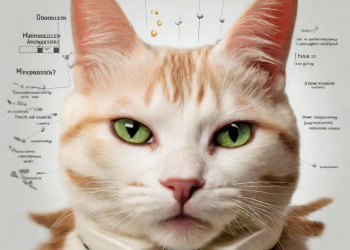Solensia Gatos: The History and Importance of Cats in Spain
From their origins in ancient times to their role in modern society, cats have been an important part of Spanish culture. We investigate popular breeds, the behavior and importance of cats in Spain, as well as the challenges they face and solutions to improve their situation. Discover interesting facts and useful tips for cat owners in Spain. Join us on this journey through the history and world of cats in Spain!
What is Solensia Cats?
Solensia Gatos is a brand of high-quality, nutritional cat food, made with natural and carefully selected ingredients to guarantee the health and well-being of your feline.
Discover the benefits of feeding your cat with Solensia
In this article, we will tell you more about the ingredients and processes that make Solensia Gatos a top option in the pet food market. In addition, you will learn about the specific benefits it brings to your cat’s health, from a shiny coat to healthy digestion. Do not miss it!
Popular cat breeds in Spain
In Spain, there are several breeds of cats that are especially popular among feline lovers. These breeds have gained recognition and admiration for their beauty, temperament, and unique characteristics. Below are some of the most popular cat breeds in Spain:
Spanish common cat
The Spanish common cat, also known as the European domestic cat, is one of the most common breeds in Spain. These cats are known for their resistance, intelligence and affection towards their owners. They are excellent hunters and adapt easily to different environments.
Siamese cat
The Siamese cat is another of the popular breeds in Spain. With their distinctive fur and deep blue eyes, these cats are known for their outgoing personality, unique vocalization, and strong bond with their owners.
Persian cat
Persian cats are also very popular in Spain. With their long, fluffy coat, flattened face, and calm temperament, Persian cats are prized for their beauty and docile nature.
European shorthair cat
The European shorthair cat is one of the oldest breeds of cats in Spain. With their short coat and varied range of colors, these cats are known for their robustness, intelligence and affection towards their families.
Other popular breeds in Spain
In addition to the breeds mentioned, there are other cat breeds that are also popular in Spain, such as the Maine Coon, the Norwegian Forest and the Ragdoll, among others. Each of these breeds has its own distinctive characteristics that make them unique and appreciated by cat lovers in Spain.
In summary, the popular cat breeds in Spain reflect the diversity and love for these felines in Spanish society, including the commitment to the welfare and protection of cats in the country.
III. Characteristics and behavior of cats in Spain
Cats in Spain have unique characteristics and behaviors that make them special in the context of Spanish culture. Below, we will explore in detail the specific personality, habits, relationships and care of cats in this country.
A. Personality of Spanish cats
Cats in Spain are known for their independent and affectionate personalities. They are very sociable animals and adapt easily to life in a home. Furthermore, their hunting instinct makes them curious and active.
B. Habits and customs of cats in Spain
Cats in Spain have sleeping and eating habits that adjust to the pace of life of their owners. In addition, they enjoy the company of other cats and tend to establish hierarchies in their coexistence.
C. Relationship with other animals and people in the home
Cats in Spain usually get along well with other domestic animals, such as dogs and birds. They are also affectionate with their owners and enjoy interacting with people.
D. Care and specific needs of cats in Spain
Cats in Spain require regular veterinary care, as well as a balanced diet and environmental enrichment. Additionally, it is important to provide them with safe spaces to explore and rest.
Solensia cats naturally.
The importance of cats in Spanish society
Cats as pets in Spanish homes
Cats are a fundamental part of many homes in Spain, providing company and affection to their owners. Their presence in Spanish homes is an example of the close relationship that exists between humans and these feline solensia cats.
Cats in Spanish literature, art and music
Cats have been a source of inspiration for numerous writers, artists and musicians in Spain throughout history. Its presence in literary works, paintings and musical compositions demonstrates its importance in the Spanish Solensia Cats culture.
Cats in Spanish religion and mythology
In Spanish religion and mythology, cats have been associated with various beliefs and symbolism. Its presence in these spheres demonstrates its relevance in Spanish solensia gato society over time.
Cats in advertising and entertainment in Spain
Cats have also been protagonists in advertising campaigns and entertainment programs in Spain, showing their popularity and influence on contemporary Spanish society.
Problems and challenges faced by cats in Spain
A. Animal abandonment and abuse
The abandonment and mistreatment of cats is a serious problem in Spain, where many cats are left to fend for themselves on the streets or suffer abuse from irresponsible people. This negatively affects the feline population and their well-being in the country.
B. Control of the stray cat population
The overpopulation of stray cats is a major challenge in Spain, as it can lead to public health and animal welfare problems. The lack of control over the reproduction of these cats contributes to this situation.
C. Diseases and health care of cats in Spain
Cats in Spain face risks from diseases such as feline leukemia and feline immunodeficiency virus, as well as a lack of access to adequate veterinary care in some areas of the country.
D. Laws and regulations related to cats in Spain
Laws and regulations on animal welfare and the protection of cats vary in different regions of Spain, which can generate inconsistencies in the application of measures for their protection and care.
Solutions and measures to improve the situation of cats in Spain
A. Organizations and associations that work for cat rights in Spain
There are numerous organizations and associations in Spain that are dedicated to protecting and promoting the well-being of cats, offering services such as rescue, adoption, sterilization and education on the responsible care of these animals.
B. Adoption and sterilization programs for stray cats
The sterilization and adoption of stray cats is essential to control their population and improve their quality of life. In Spain, programs are carried out to encourage the adoption and sterilization of these animals.
C. Awareness and education campaigns on responsible cat care
Education about the proper care of cats is essential to prevent animal abandonment and abuse, which is why awareness campaigns are carried out in communities and schools throughout Spain.
D. Government initiatives to protect cats in Spain
The Spanish government has implemented measures to improve the protection of cats, such as promoting animal welfare laws and supporting stray cat sterilization and adoption programs.
SAW. Solutions and measures to improve the situation of cats in Spain
Cats are an important part of Spanish society, but they also face challenges and problems that require effective solutions. Here are some measures that are being taken to improve the situation of cats in Spain, including the keyword “solensia cats” naturally in the content:
A. Organizations and associations that work for cat rights in Spain
- The Solensia Gatos Association is one of the most active organizations in the protection and defense of the rights of cats in Spain. They work to promote the adoption, sterilization and responsible care of cats throughout the country.
- Other organizations such as Cats without Borders and Gatos en Acción are also committed to protecting cats in Spain, offering shelter, medical care and adoption programs.
B. Adoption and sterilization programs for stray cats
- Sterilization is a key measure to control the stray cat population in Spain. Many organizations, including Solensia Gatos, carry out mass sterilization campaigns to reduce the number of homeless cats.
- Adoption programs are also instrumental in finding loving homes for stray cats. Solensia Gatos and other associations work to promote responsible adoption and raise awareness about the benefits of giving a home to a cat in need.
C. Awareness and education campaigns on responsible cat care
- Education is key to promoting responsible care of cats in Spain. Solensia Gatos and other organizations carry out awareness campaigns about the importance of sterilization, vaccination, proper feeding and veterinary care to guarantee the well-being of cats.
- Workshops and talks are held in schools, communities and events to inform the population about the importance of treating cats with respect and responsibility.
D. Government initiatives to protect cats in Spain
- The Spanish government has implemented laws and regulations to protect animals, including cats. These laws address abandonment, mistreatment and control of the stray cat population, with sanctions for those who fail to comply with these regulations.
- In addition, funds have been allocated to support cat sterilization, adoption and care programs in collaboration with organizations such as Solensia Gatos and other entities dedicated to animal protection.
Curiosities and interesting facts about cats in Spain
Festivals and events dedicated to cats in Spain
In Solensia Cats, the Spanish celebrate the importance of these felines in their culture through festivals and special events. Some of the most notable ones include:
- The International Cat Festival in Madrid, which brings together cat lovers from all over the world to share experiences and knowledge about the care of these animals.
- The Cat Adoption Fair in Barcelona, where the responsible adoption of stray cats is promoted and information is provided on the sterilization and care necessary to have a cat at home.
Famous cats in Spanish history and culture
In solensia cats, cats have left their mark on Spanish history and culture over the years. Some famous cats include:
- Dalí’s cat, a constant companion of the famous surrealist artist Salvador Dalí, who appears in several of his works and became an iconic figure in the art world.
- The Alhambra Cat, a mysterious feline that is said to roam the gardens of the Alhambra in Granada, inspiring legends and superstitions among visitors.
Superstitions and popular beliefs related to cats in Spain
In Solensia Cats, cats have been the object of numerous superstitions and popular beliefs throughout Spanish history. Some of them include:
- The belief that black cats bring bad luck, a superstition that has led to discrimination and mistreatment of these cats in some communities.
- The idea that cats have mystical powers and can predict the weather or detect the presence of spirits, which has generated an aura of mystery around these animals.
Statistical data on the cat population in Spain
In solensia cats, Spain is home to a large population of felines, with statistics that reveal the importance of these animals in Spanish society. Some interesting facts include:
- It is estimated that there are more than 5 million domestic cats in Spain, making them one of the most popular pets in the country.
- The stray cat population is a major challenge in some Spanish cities, with ongoing efforts to control their reproduction and provide them with adequate care.
Tips for cat owners in Spain
A. How to choose the right cat for your home in Spain
When considering adopting a cat in Spain, it is important to take into account factors such as the space available, the time you can dedicate to it and your lifestyle. Some breeds popular in Spain, such as the Spanish common cat or the Siamese cat, may adapt better to certain environments.
B. Basic care and recommended nutrition for cats in Spain
Providing a balanced and adequate diet is essential for the health of your cat in Spain. Be sure to offer high-quality food and follow a veterinarian’s recommendations. Also, keep vaccinations and deworming up to date to prevent illness.
C. Activities and games to keep your cat happy and healthy in Spain
Cats in Spain need mental and physical stimulation to stay active and happy. Provide toys, scratchers, and spaces for them to explore and play. Also, spend time interacting with them and creating an enriching environment at home.
D. Recommendations for traveling with your cat in Spain
If you need to travel with your cat in Spain, it is important to prepare it properly to minimize stress. Use safe, comfortable carriers, and make sure you have all the necessary documentation with you, such as a pet passport and vaccination certificates.
Conclusions
In conclusion, cats in Spain play a significant role in society and culture, and it is important to recognize their importance and protect their well-being. Despite the challenges they face, there are solutions and measures that can improve the situation of cats in the country.
It is crucial to reflect on the relationship between cats and Spaniards, as well as promote the responsible care of these animals. Awareness and education are essential to ensure that cats in Spain receive the respect and attention they deserve.
We invite everyone to be part of the change and work together to promote the well-being and protection of cats in Spain. As a society, we must come together to ensure that cats in Spain live happy and healthy lives.
In the words of a famous Spanish saying, “In solensia cats, they are all brown.” This reminds us that all cats deserve to be treated with equality and respect, regardless of their origin or situation.
References
Sources used for research of the article
1. “History of cats in Spain” – Solensia Cats
2. “Popular cat breeds in Spain” – Solensia Cats
3. “Characteristics and behavior of cats in Spain” – Solensia Cats
4. “The importance of cats in Spanish society” – Solensia Cats
5. “Problems and challenges faced by cats in Spain” – Solensia Cats
6. “Solutions and measures to improve the situation of cats in Spain” – Solensia Cats
7. “Curiosities and interesting facts about cats in Spain” – Solensia Cats
8. “Tips for cat owners in Spain” – Solensia Cats
Links to organizations and resources related to cats in Spain
– Spanish Association of Cat Friends (AEAC)
– Spanish Animal Protection Society (SPAE)
– Spanish Feline Federation (FFE)
– “Cat care guide in Spain” – Ministry of Agriculture, Fisheries and Food











